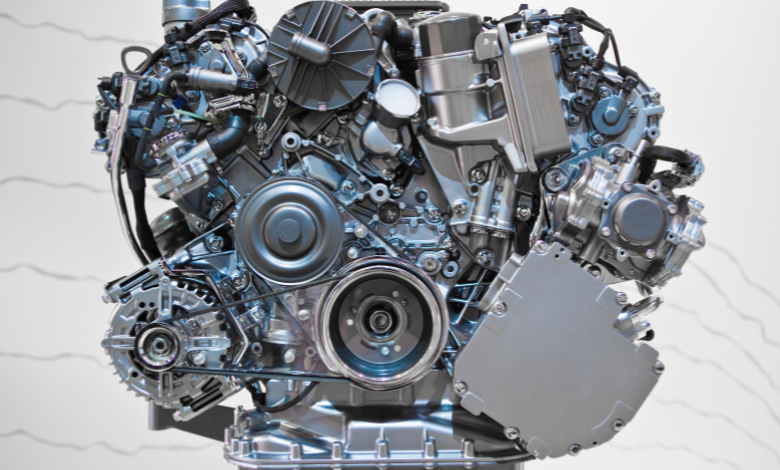2.0 kia soul korea export container engine shipping

The Kia Soul, with its distinctive boxy design and practical features, has earned a loyal following worldwide. Among its various engine options, the 2.0-liter variant stands out for offering an ideal balance of power and efficiency. If you’re considering importing a 2.0 Kia Soul from Korea, there are several factors to consider, especially when it comes to engine specifications, export processes, container shipping, and logistics.
Why Choose the 2.0 Kia Soul?
The Kia Soul has been a popular choice for many drivers due to its unique design, practicality, and affordability. But the 2.0-liter engine option takes it up a notch for those looking for more power without sacrificing fuel economy. Here’s why the 2.0 Kia Soul is an excellent choice for export:
1. Engine Performance
The 2.0 Kia Soul is equipped with a 2.0-liter inline-4 engine, delivering around 147 horsepower. This engine offers a good balance of performance and fuel efficiency, making it ideal for both urban driving and longer journeys. With its smart design and advanced engineering, this engine variant provides reliable acceleration and smooth handling, making it a favorite for people who appreciate a little extra power in their compact SUVs.
2. Fuel Efficiency
Despite the power, the 2.0-liter engine remains impressively fuel-efficient, averaging around 29-30 miles per gallon. This makes it a cost-effective option for daily commuting or long-distance trips. As fuel prices fluctuate globally, having a vehicle that maximizes every gallon becomes increasingly important for consumers worldwide.
3. Advanced Features
The 2.0 Kia Soul is loaded with technology features that enhance driving experience. These include safety features like forward-collision warning, lane-keeping assist, blind-spot monitoring, and infotainment systems such as Apple CarPlay and Android Auto. Exporting a vehicle with such high-tech features ensures that international buyers receive a modern, competitive car that stands up to market demands.
Exporting the 2.0 Kia Soul from Korea
Once you’ve decided on the Kia Soul 2.0 for export, the next step is to navigate the export process from Korea. Kia, a South Korean automobile manufacturer, has a well-established reputation for international trade, making the process relatively streamlined, but it still requires careful attention to several details.
1. Documentation and Compliance
Exporting a car from Korea involves securing the necessary export documentation. The key documents include the Bill of Sale, Certificate of Origin, and Customs Declaration. These ensure the vehicle is legally cleared for export and meets both the exporting country’s regulations and the importing country’s standards.
You may also need to ensure compliance with the Emission Standards of the destination country. Countries like the U.S. and EU have strict regulations regarding engine emissions. It’s crucial to confirm that the 2.0 Kia Soul’s engine meets these standards to avoid issues upon arrival.
2. Korean Export Laws
Korea has strict laws regarding the export of vehicles, including used cars. All vehicles leaving the country must be inspected to verify their condition, mileage, and roadworthiness. Once this inspection is complete, the car can be loaded for shipping.
Shipping: Container vs. Ro-Ro (Roll-on/Roll-off)
One of the most important decisions you’ll make when exporting a 2.0 Kia Soul is the method of shipping. There are two primary options: Container Shipping and Ro-Ro (Roll-on/Roll-off) Shipping.
1. Container Shipping
For maximum protection during transit, container shipping is the preferred method. A car like the 2.0 Kia Soul can be loaded into a standard 20-foot or 40-foot shipping container, ensuring it is protected from the elements and potential damage. Container shipping is highly recommended if the car is heading to regions with rough sea conditions or where damage risks are higher.
Benefits of Container Shipping:
- Protection from Weather: The vehicle is entirely enclosed, keeping it safe from adverse weather conditions.
- Increased Security: Container shipping offers added security against theft or vandalism.
- Space for Extra Goods: If you want to ship other items alongside the vehicle, a container provides the space to do so, optimizing your shipping cost.
Drawbacks:
- Cost: Container shipping is generally more expensive than Ro-Ro shipping due to the added protection and logistics of handling containers.
- Availability: Container availability can sometimes be limited depending on the shipping route or time of year, potentially delaying the shipment.
2. Ro-Ro Shipping
Ro-Ro shipping is another option for exporting a Kia Soul. In this method, the vehicle is driven onto the shipping vessel and securely parked for the journey. Ro-Ro ships are designed specifically for transporting cars and heavy machinery.
Benefits of Ro-Ro Shipping:
- Cost-effective: It’s generally cheaper than container shipping, making it a more budget-friendly option.
- Efficiency: Since no container is involved, loading and unloading the vehicle is faster, resulting in quicker shipping times.
- Availability: Ro-Ro vessels often have higher availability than container vessels.
Drawbacks:
- Exposure to Elements: The vehicle is exposed to the environment during transit, which could result in damage from weather or sea salt.
- Higher Risk of Theft or Damage: Ro-Ro shipping has a slightly higher risk of theft or damage due to the lack of protective enclosures.
Shipping Costs and Timeframes
Shipping costs vary depending on several factors, including the shipping method, destination, and time of year. On average, shipping a 2.0 Kia Soul from Korea using container shipping can cost between $1,200 and $3,000, depending on the destination country. Ro-Ro shipping, on the other hand, may cost $800 to $1,500, making it a more affordable option.
The shipping timeframe also varies depending on the destination, but expect anywhere from 2 to 6 weeks for delivery.
Customs and Import Duties
Once the vehicle reaches its destination, the importing process begins. The buyer is responsible for paying customs duties and taxes, which can vary greatly depending on the destination country. For example, the U.S. charges 2.5% import duty on passenger cars, while some European countries may have higher rates, plus additional fees like VAT (Value Added Tax).
It’s essential to be aware of these costs beforehand to ensure a smooth transaction.
Final Thoughts
Exporting a 2.0 Kia Soul from Korea can be a rewarding process, especially given the vehicle’s reliability, advanced features, and engine performance. Understanding the nuances of shipping, from container versus Ro-Ro options to customs regulations, will help ensure that the vehicle reaches its destination safely and efficiently.
Whether you’re importing for personal use or resale, the 2.0 Kia Soul is a versatile, stylish choice that delivers value across the board. By considering these factors, you can make an informed decision and successfully bring a piece of South Korean automotive engineering to your destination country.



